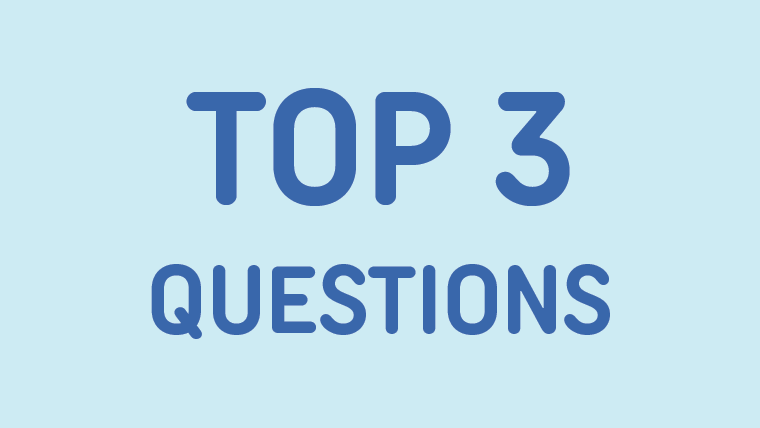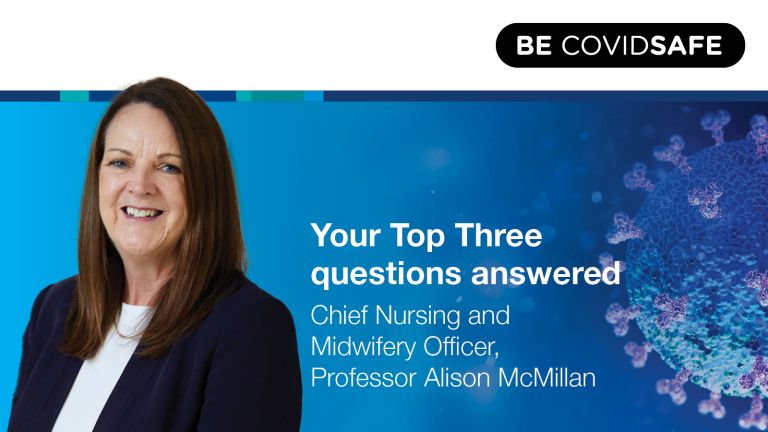
Hello, my name is Alison McMillan, and I'm the Commonwealth Chief Nursing and Midwifery Officer and I'd like to introduce you also to Ramas and Peter who are here to help with the interpreting today.
The shout-out today is to Australian Pharmacists who've been doing an amazing job administering the COVID-19 vaccination in addition to all of their normal work. Pharmacists have stepped up and completed special approved training in order to be able to administer vaccinations and then the mandatory COVID-19 vaccine training necessary for this vaccine roll-out. I'm also giving a shout-out to the Australian College of Nursing who are appointed by the Australian government to develop the mandatory training materials all health professionals need to complete before they can start administering vaccine. And we are very grateful for the tremendous work they continue to do. We're going to go to a series of questions.
So, the first question is, does a smaller dose for children mean the vaccine is less effective? The answer is no. A smaller dose of a Pfizer COVID-19 vaccination for children, has been shown to be... In clinical trials, to be just as effective and offers excellent protection against COVID-19. Even though the COVID-19 vaccination in children. Sorry, even though COVID in children is often milder than in adults, there is strong evidence still to support the vaccination of children. The Therapeutic Goods Administration or TGA has provisionally approved the Pfizer COVID-19 vaccination for children now aged between 5 and 11. And this happened early this month in December. The Australian Technical Advisory Group on Immunisation or ATAGI, also recommended the Pfizer vaccine for children in this 5-11 age group. The vaccine dose approved by the TGA for children aged 5-11 is the same safe and effective vaccine used in people 12 and above. The only difference that it's a third of the vaccine dose that's given to people 12 and over. The Pfizer vaccine, COVID-19 vaccine for 5-11 year old's will be distributed through vaccine providers in different packaging to distinguish it from the adult dose which helps keep everyone safe with that extra quality measure. The Pfizer COVID-19 vaccination cause for 5-11 year olds requires two doses, given eight weeks apart. The interval of the doses can be shortened to a minimum of three weeks in some special circumstances but at the moment, it will be eight weeks between the first and the second dose. Appointments for children aged 5-11 will be available from Jan 10 next year and you can find appointments. Approach the appointments on the Department of Health website, through the vaccine clinic finder. If you can't find an appointment straight away, keep revisiting that and check back as more appointments will become available in the coming weeks as we deliver the Pfizer COVID-19 vaccine to 5-11 year old's. It's important to remember that vaccinating children will help reduce community spread, particularly to children and their siblings, potentially to older grandparents and to the wider community.
The second question today is, should 11 year old's wait until they are 12 to get the COVID-19 vaccine? To quote a good friend of mine, Brett Sutton, "The best vaccine "is the vaccine that's available to you right now." There's really no need to wait till an 11 year old becomes 12 as there won't be any... much or any difference between their response they get at 11 or 12 to the vaccine. The risk is, that if you wait and don't vaccinate them, of course they could catch COVID in that time and that could make them quite unwell. It's better for them to get the recommended dose of the COVID-19 vaccination right now that it's available to them, to help prevent that spread, and to protect them from contracting COVID. As with all age groups and everyone we know, that getting vaccine significantly reduces the risk of severe disease and hospitalisation.
Last question, is ATAGI considering boosters for people aged 12-17 now because of the Omicron variant? So, ATAGI will continue to monitor all of the available evidence and information available across the world. Booster doses are currently being recommended for anyone 18 years and over, who have had both of their primary doses. And that should be at least five months at the moment, after their second dose so if you've had two doses and its more than five months since your second dose, now is the time to get your booster dose. There are appointments available all over the country right now and its important with this new Omicron variant, that you will consider getting your vaccination, your booster vaccination as soon as your time becomes available. ATAGI are currently recommending boosters for people over 18, they'll continue to look at the evidence elsewhere.
So, before I leave you today, this will be my last Top 3 for 2021, it's really a privilege for me to be able to come and talk to you and answer questions that you might have. I and my colleagues, the Chief Health Officer and Deputy Chief Health Officers are really very grateful for the terrific feedback you give us on these sessions. Please remember to stay safe during this festive season and I wish you all... The very best wishes to you and your family over the festive season. Thank you.
Top 3 questions
- Does a smaller dose for children mean it is less effective?
- Should 11 year olds wait until they are 12 to get a COVID-19 vaccine?
- Is ATAGI considering boosters for people aged 12-17 years now with the Omicron variant?







